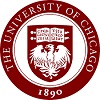Job Description
Philosophy concerns itself with fundamental problems. Some are abstract and deal with the nature of truth, justice, value, and knowledge; others are more concrete, and their study may help guide conduct or enhance understanding of other subjects. Philosophy also examines the efforts of past thinkers to understand the world and people’s experience of it.
Although it may appear to be an assortment of different disciplines, there are features common to all philosophical inquiry. These include an emphasis on methods of reasoning and the way in which judgments are formed, on criticizing and organizing beliefs, and on the nature and role of fundamental concepts.
Students of almost any discipline can find something in philosophy which is relevant to their own specialties. In the sciences, it provides a framework within which the foundations and scope of a scientific theory can be studied, and it may even suggest directions for future development. Since philosophical ideas have had an important influence on human endeavors of all kinds, including artistic, political, and economic, students of the humanities and social sciences should find their understanding deepened by acquaintance with philosophy.
The Department of Philosophy offers an M.A. and a Ph.D. degree. The University’s basic requirements for the M.A. and Ph.D. degrees are discussed in the Graduate Degrees section of this bulletin.
Three programs lead to the M.A. in Philosophy. One is a general program providing a grounding in all branches of the subject. The others provide special training in one branch.
Coterminal Bachelor’s and Master’s Degrees in Philosophy
It is possible to earn an M.A. in Philosophy while earning a B.A. or B.S. This can usually be done by the end of the fifth undergraduate year, although a student whose degree is not in Philosophy may require an additional year. Standards for admission to, and completion of, this program are the same as for M.A. applicants who already have the bachelor’s degree when matriculating. Applicants for the coterminal program are not, however, required to take the Graduate Record Exam.
University requirements for the coterminal M.A. are described in the Coterminal Master’s Degrees section of this bulletin. See also the Registrar’s Coterminal Degree Programs web site.
University Coterminal Requirements
Coterminal master’s degree candidates are expected to complete all master’s degree requirements as described in this bulletin. University requirements for the coterminal master’s degree are described in the Coterminal Master’s Degrees section. University requirements for the master’s degree are described in the Graduate Degrees section of this bulletin.
After accepting admission to this coterminal master’s degree program, students may request transfer of courses from the undergraduate to the graduate career to satisfy requirements for the master’s degree. Transfer of courses to the graduate career requires review and approval of both the undergraduate and graduate programs on a case by case basis.
In this master’s program, courses taken during or after the first quarter of the sophomore year are eligible for consideration for transfer to the graduate career; the timing of the first graduate quarter is not a factor. No courses taken prior to the first quarter of the sophomore year may be used to meet master’s degree requirements.
Course transfers are not possible after the bachelor’s degree has been conferred.
The University requires that the graduate advisor be assigned in the student’s first graduate quarter even though the undergraduate career may still be open. The University also requires that the Master’s Degree Program Proposal be completed by the student and approved by the department by the end of the student’s first graduate quarter.
Admissions
All prospective master’s students, including those currently enrolled in other Stanford programs, must apply for admission to the program. No fellowships are available. Entering students must meet with the director of the master’s program and have their advisor’s approval, in writing, of program proposals. More information about advising can be found on the Philosophy departmental page of this bulletin. The master’s program should not be considered a stepping stone to the doctoral program; these two programs are separate and distinct. Coterminal applications are only accepted in Winter Quarter, for a Spring Quarter start. The coterm deadline is the end of the second week of Winter Quarter.
Unit Requirements
Each program requires a minimum of 45 units in philosophy. Students in a special program may be allowed or required to replace up to 9 units of philosophy by 9 units in the field of specialization. Although the requirements for the M.A. are designed so that a student with the equivalent of a strong undergraduate philosophy major at Stanford might complete them in one year, most students need longer. Students should also keep in mind that although 45 units is the minimum required by the University, quite often more units are necessary to complete department requirements. Up to 6 units of directed reading in philosophy may be allowed. There is no thesis requirement, but an optional master’s thesis or project, upon faculty approval, may count as the equivalent of up to 8 units. A special program may require knowledge of a foreign language. At least 45 units in courses numbered 100 or above must be completed with a grade of ‘B-‘ or better at Stanford. Students are reminded of the University requirements for advanced degrees, and particularly of the fact that for the M.A., students must complete three full quarters as measured by tuition payment.




